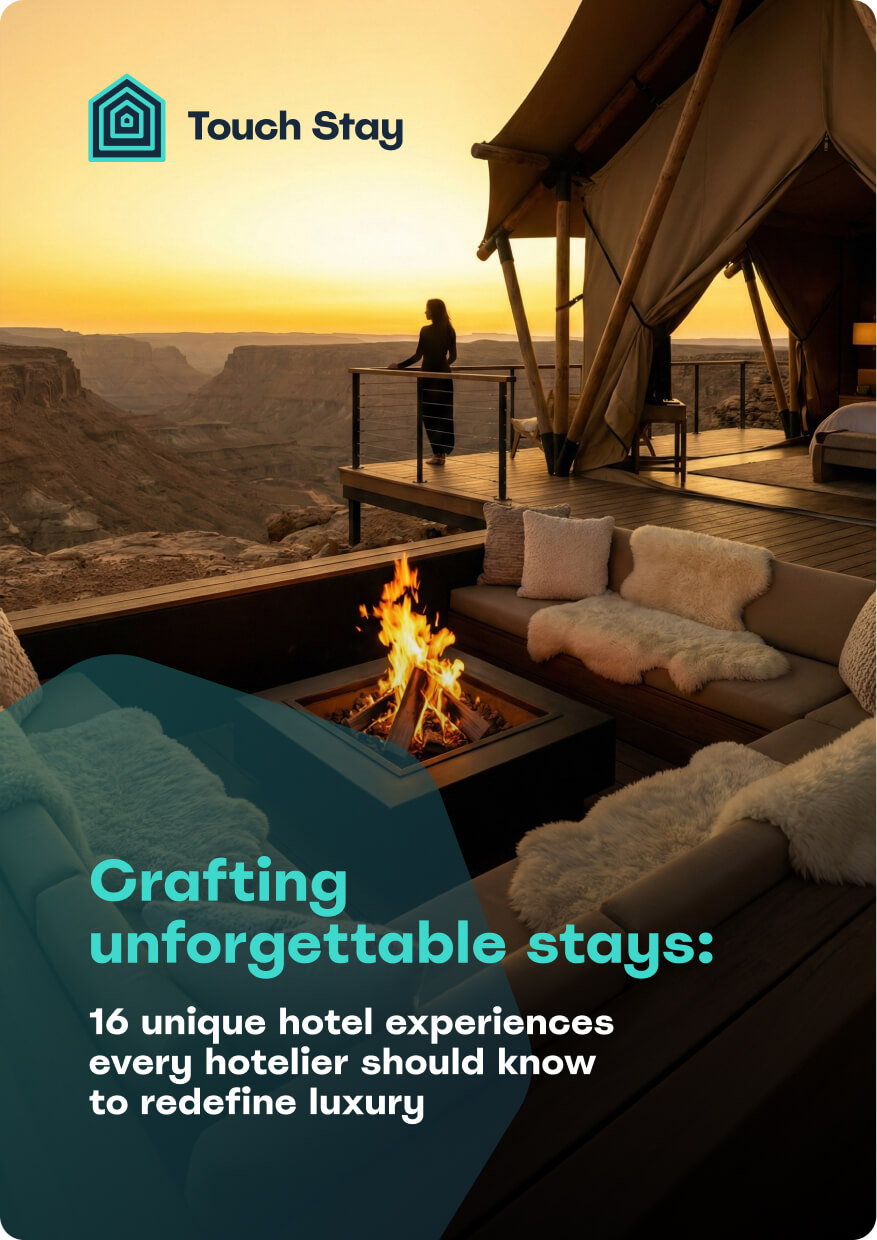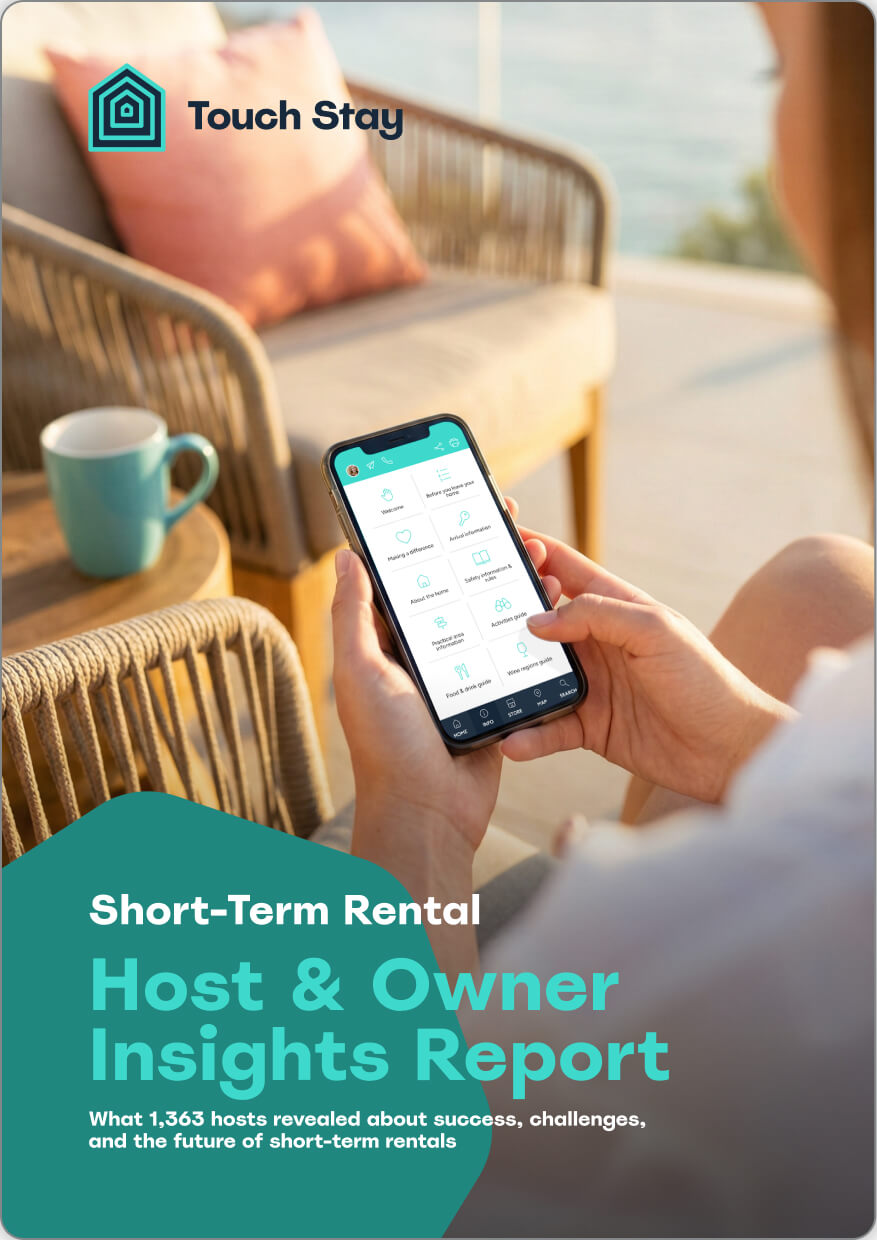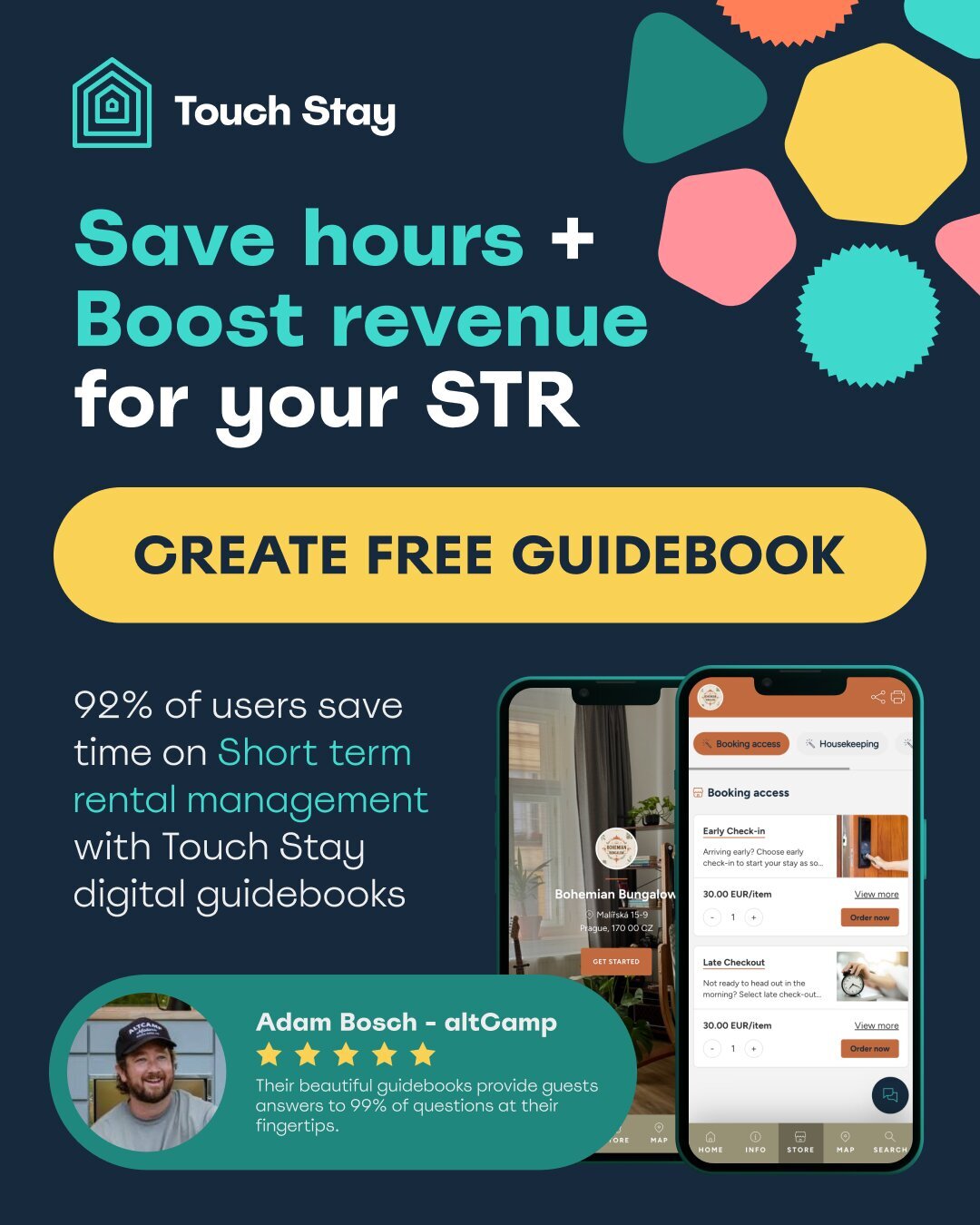This comprehensive guide explores the best practices to help you elevate your guest communication strategy in the digital age. We'll explore the importance of clear and consistent communication, delve into effective digital strategies, and provide actionable tips to ensure a smooth and enjoyable experience for your guests.
- Why guest communication matters
- Leveraging digital guest communication strategies
- 5 key digital guest communication strategies
Why guest communication matters
Build trust and set the stage: first impressions matter! Clear communication from the very beginning establishes you as a professional and reliable host, fostering trust and alleviating guest anxieties. This positive first impression sets the stage for a successful and enjoyable stay.
Reduce repetitive questions and increase efficiency: by providing all the necessary information upfront through clear and concise communication, you empower your guests and free yourself up to focus on other aspects of hosting. Less time spent answering repetitive questions translates to more time creating a memorable experience for your guests.
More positive reviews and increased bookings: guests who feel informed and cared for throughout the communication process are more likely to leave positive reviews, which can significantly boost your bookings and reach.
💡Want to make responding to guest reviews effortless? Try our Free AI Review Response Generator to craft thoughtful, personalized replies in seconds.
The art of repetition
- Repetition is key: don't be afraid to repeat important information across different touchpoints in your communication flow. This ensures it's absorbed by guests and reduces the likelihood of them needing to ask the same questions multiple times.
- Focus on the ‘why?’: when communicating important information, explain why it's important to the guest. This will increase engagement and ensure they retain the information.
- Embrace humour and familiarity: injecting humour or a conversational tone into your communication can make it more engaging and memorable for guests. However, ensure it aligns with your overall brand voice.
Crafting a strong brand voice
- Develop a clear ‘why?’: clearly articulate your brand's core values and what makes your property unique. This will resonate with guests and guide your communication style.
- Consistency is key: maintain a consistent voice across all your communication channels, from your website to your digital guidebook and guest emails.
The power of less
- Simplify your content: avoid overwhelming guests with long-winded emails, complex instructions, or multiple attachments. Instead, focus on clear and concise information presented in a user-friendly format.
- Structure is key: organise your content logically with headings, subheadings, and bullet points to make it easy for guests to find the information they need quickly. Check out our blog on how to easily organise your digital guidebook information.
Staying connected pre-arrival
Avoiding the pre-arrival gap: the period between booking and arrival can be a missed opportunity for guest engagement. Regularly scheduled emails with local recommendations, tips, or a simple check-in message can keep guests excited about their upcoming stay and demonstrate your commitment to providing a positive experience.
- Personalisation is a plus: while automation can be a time-saver, consider incorporating personalised touches into your pre-arrival communication. This could be a quick email asking about the guest's interests or a welcome video showcasing your property.
Leveraging digital guest communication strategies
Digital communication tools offer a multitude of advantages for both hosts and guests. Here's a closer look at some of the key benefits:
- Efficiency: digital communication tools streamline communication, saving you time and effort.
- Consistency: automated messages ensure all guests receive the same essential information at the right time.
- Accessibility: guests have access to important information 24/7 through their mobile devices.
- Reduced environmental impact: digital communication eliminates the need for paper-based guest manuals, minimising your environmental footprint.
5 key digital guest communication strategies
Mapping out your guest communication flow: the first step to effective digital communication is establishing a clear roadmap. Download our free Guest Communication Planner to help you ace your communications at every stage of the guest journey.
1. Establish a guest communication flow
Map out the touchpoints between booking and arrival to ensure consistent information delivery. This might include a welcome email, a pre-arrival email with check-in details, and a post-stay thank you note.
2. Use templates
Touch Stay’s Memo feature allows you to schedule pre-written or customised SMS texts and/or emails to be sent at designated times throughout the booking process.Create pre-written templates for common messages like booking confirmations, check-in instructions, and reminders. This saves time and ensures consistency across your communication.
3. Embrace digital guidebooks
Touch Stay digital guidebook provides a centralised location for all essential information, from Wi-Fi codes to local recommendations. Guests can access it offline during their stay, eliminating the need for lengthy email exchanges.
4. Guest notification systems
These tools automate message delivery and can be programmed to highlight specific sections of your digital guidebook at relevant times throughout the guest's stay.
5. The human touch
While digital communication is essential, don't neglect the personal touch. A handwritten welcome note or a phone call to address any questions can create a lasting positive impression.
By following these tips and implementing effective digital communication strategies, you can establish a seamless flow of information that keeps your guests informed, engaged, and excited about their stay at your property. This will not only lead to smoother operations for you, but will also result in more satisfied guests and a thriving hosting business.
Try Touch Stay free for 14-days and start acing your guest communications!

Ned
Ned has clocked up over 11 years in digital marketing and comms, with a strong focus on creating engaging content for a range of brands and agencies. When he’s not writing, he can be found digging for records, peering through his telescope at the night sky, or onboard his local lifeboat where he volunteers as a crewmember.
Be the first to know!
Join our newsletter for early access to:
- ✅ Free guides
- ✅ Pro tips & tricks
- ✅ Time saving tutorials
- ✅ Latest blog posts
- ✅ Checklists & templates




















.webp?width=50)

